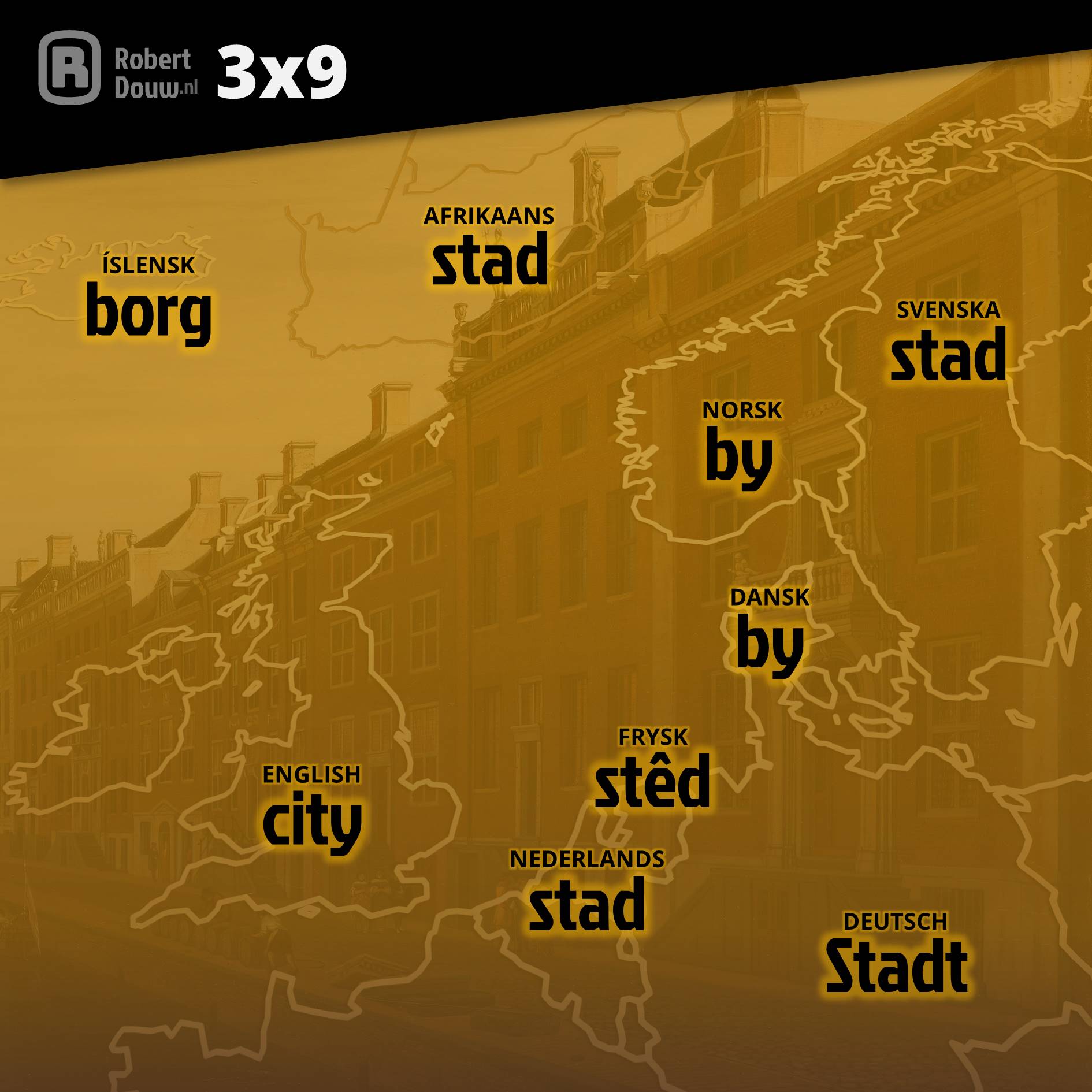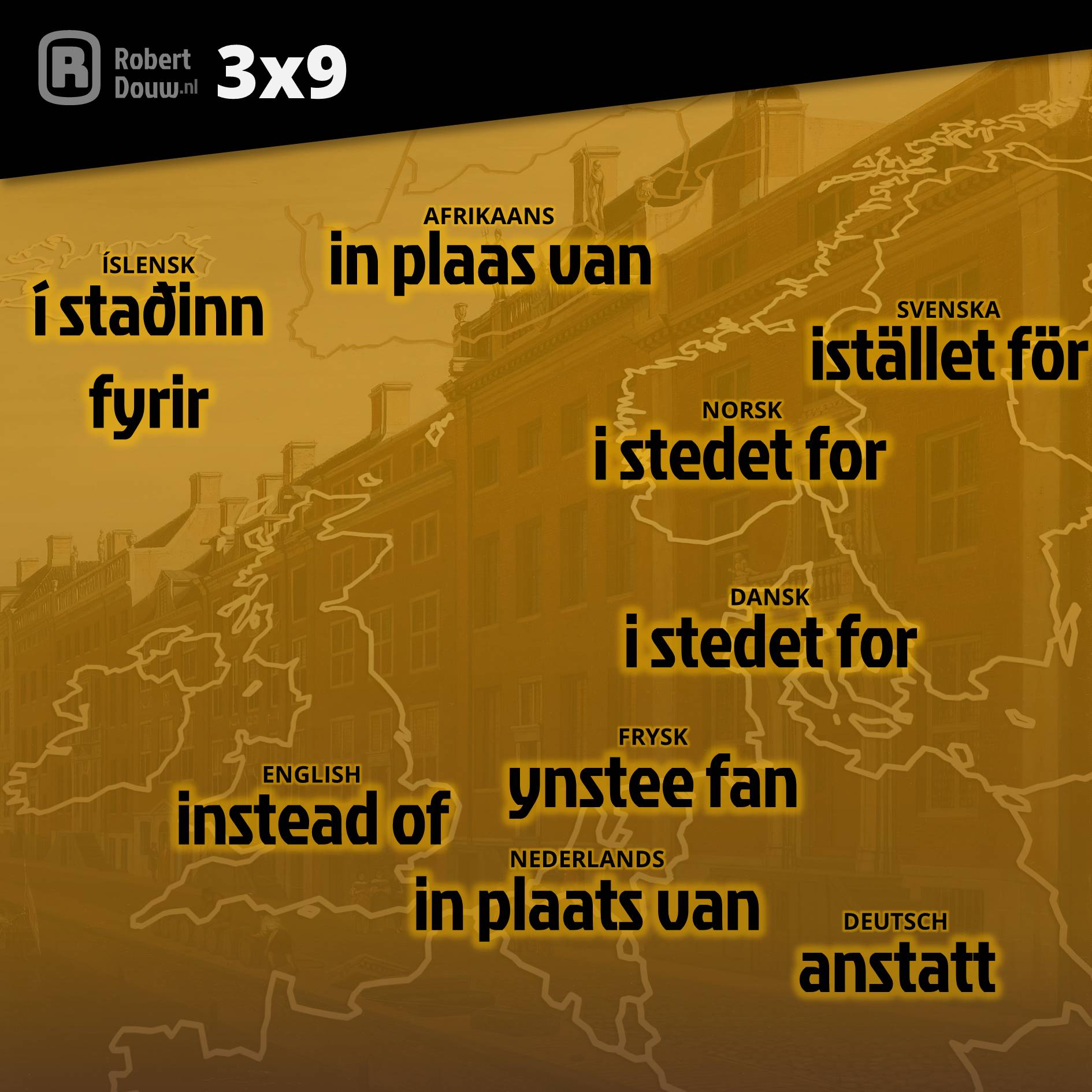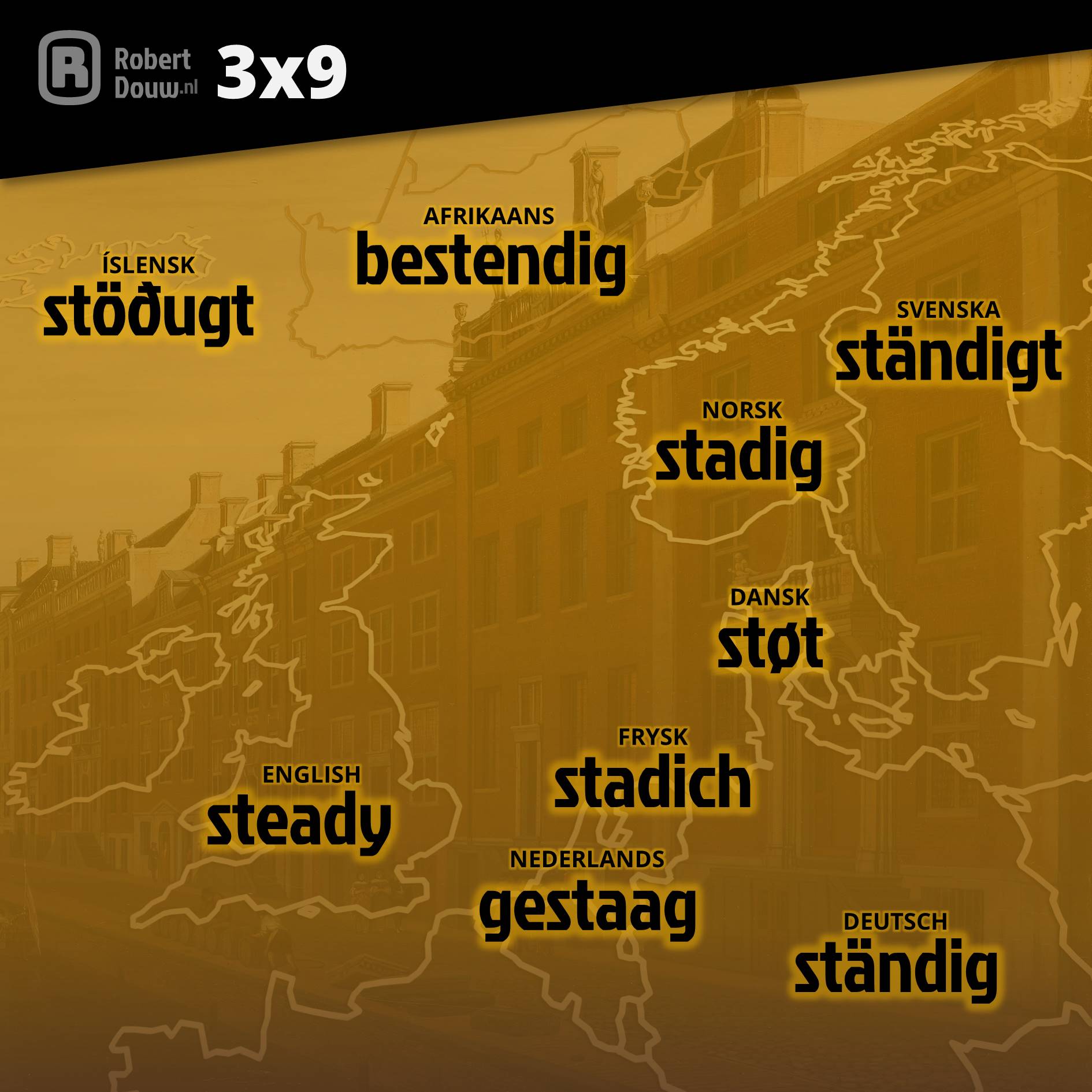THREE TIMES NINE
city, instead of, steady
Linguistics
| 27-03-2022
Until about 1200, a fortified settlement was indicated in the Germanic languages by the word burg. You can still see this in borg, the Icelandic word for city, and in place-names such as Middelburg, Hamburg, Edinburgh, Peterborough and Canterbury. The Danish and Norwegian by is somewhat similar to burg, but seems to have a different origin. In English, burg (and its variants) was replaced by city, from the Old French cite (modern French cité), while at about the same time Swedish, Dutch, German and Frisian began to use stad / Stadt / stêd.
The text continues below the images.
stead
The Frisian word stêd ("city") sounds almost the same as English stead, and that is no coincidence. The original meaning of stad / stêd was plaats ("place"), which is reflected in the expression in plaats van (in older Dutch in stede van), in English instead of. And in the other Germanic languages you also see a form of stad or stede in the expression. The only exception to this is Afrikaans, which descends from Dutch and has taken over plaas from plaats.
steady
In English, steady and steadily are derived from stead. And that is also reflected in the other Germanic languages. Gestaag is now a more common word in Dutch, but previously gestadig or stadig were used. The latter can still be seen in contemporary Norwegian and Frisian, although the spelling of Frisian is somewhat different. The words in the third picture don't all mean exactly the same, but it comes close and the words do have the same origin. It shows once again that language develops in different ways in different places, both in form and meaning.
The Frisian word stêd ("city") sounds almost the same as English stead, and that is no coincidence. The original meaning of stad / stêd was plaats ("place"), which is reflected in the expression in plaats van (in older Dutch in stede van), in English instead of. And in the other Germanic languages you also see a form of stad or stede in the expression. The only exception to this is Afrikaans, which descends from Dutch and has taken over plaas from plaats.
steady
In English, steady and steadily are derived from stead. And that is also reflected in the other Germanic languages. Gestaag is now a more common word in Dutch, but previously gestadig or stadig were used. The latter can still be seen in contemporary Norwegian and Frisian, although the spelling of Frisian is somewhat different. The words in the third picture don't all mean exactly the same, but it comes close and the words do have the same origin. It shows once again that language develops in different ways in different places, both in form and meaning.
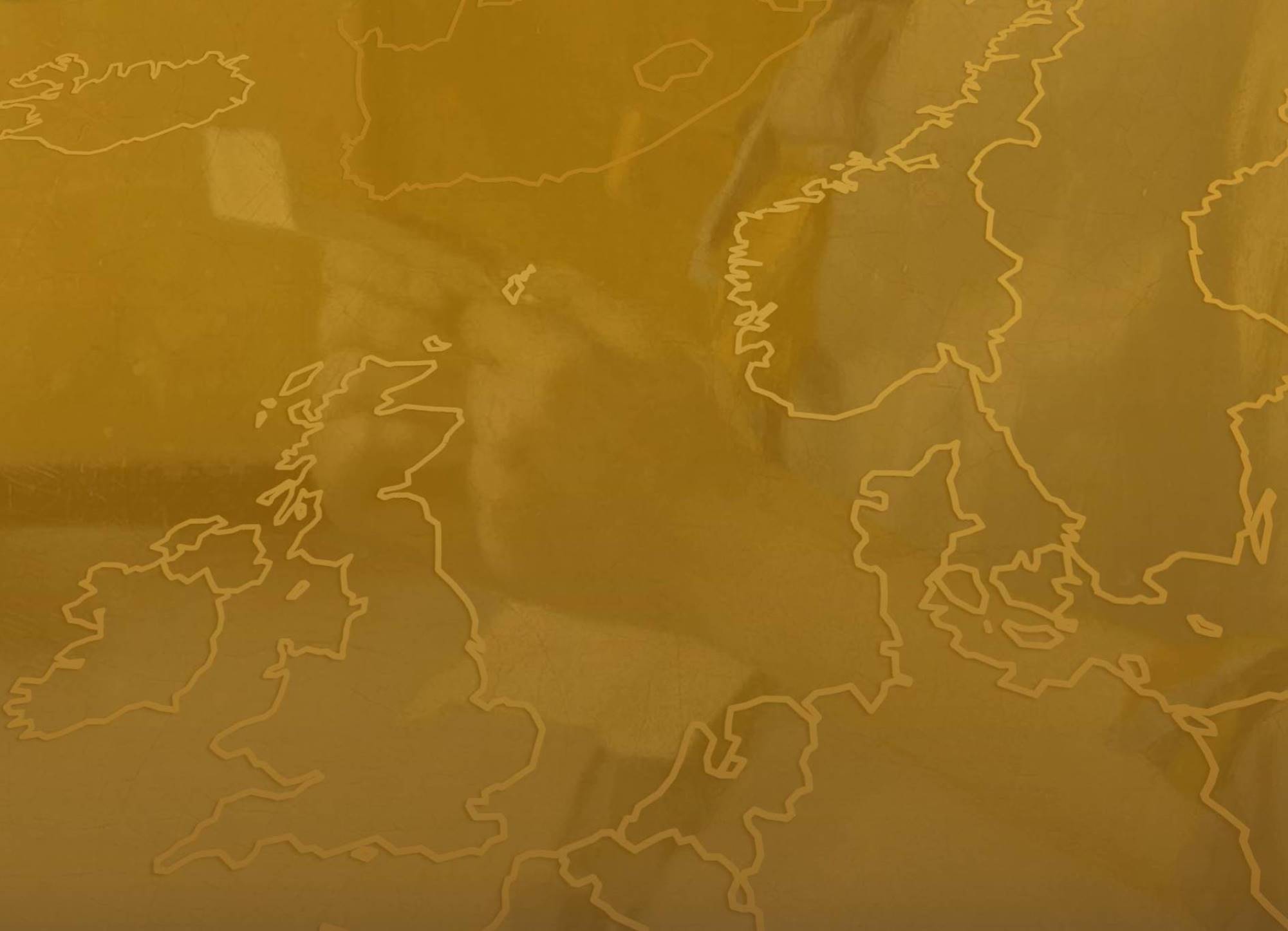
THREE TIMES NINE
word, verb, verbal
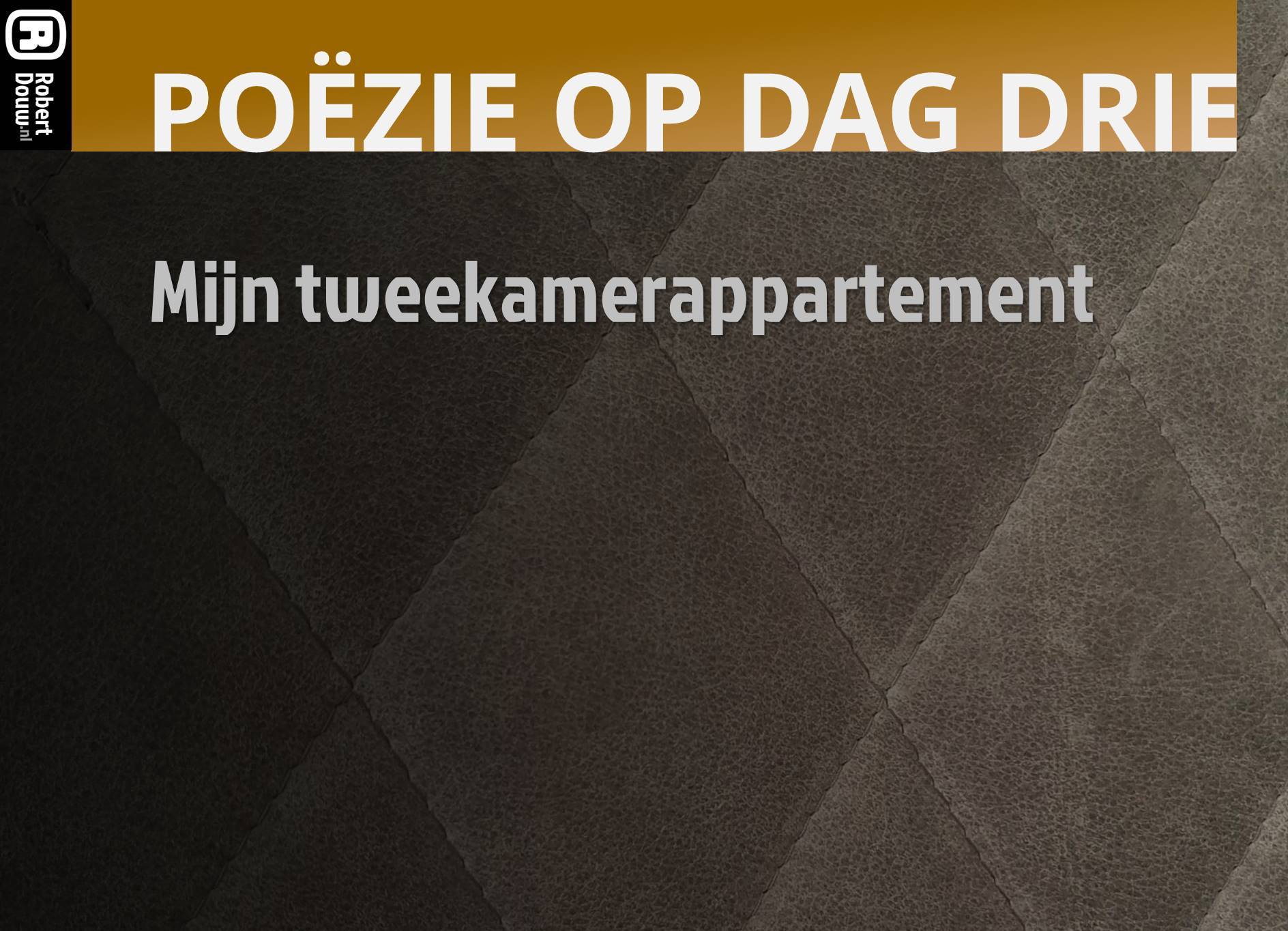
POETRY ON DAY THREE
Mijn tweekamerappartement
LINGUISTICS
Click here for an overview of everything in the Linguistics section.

